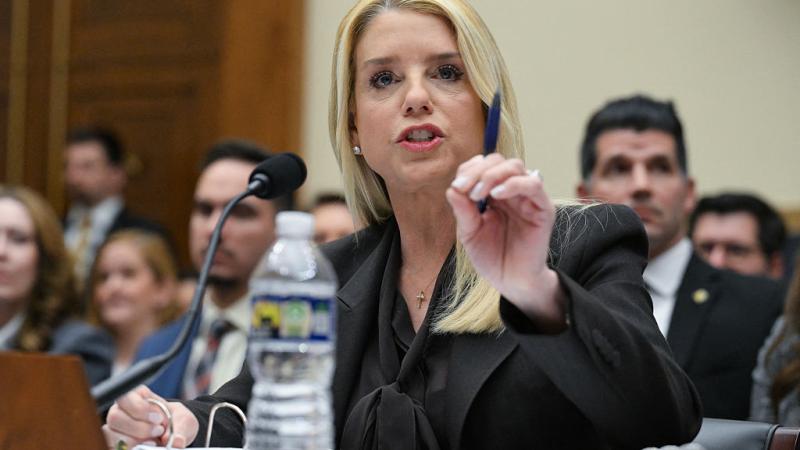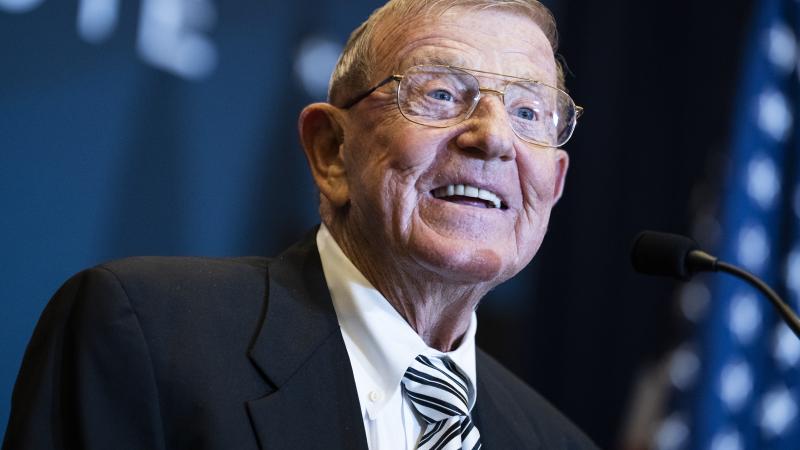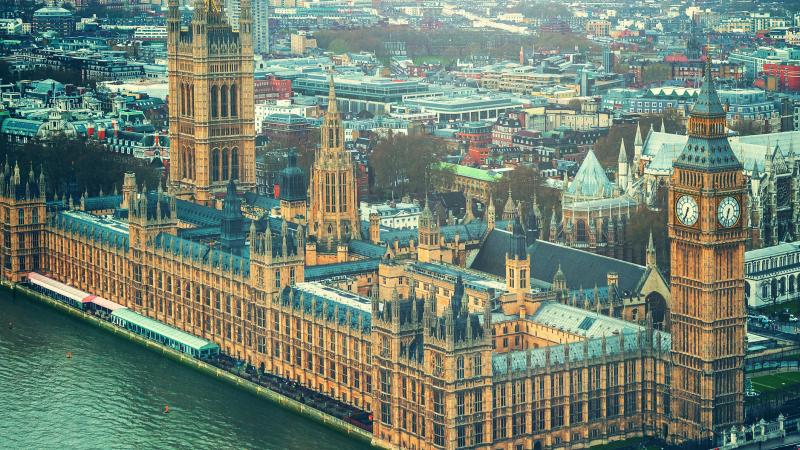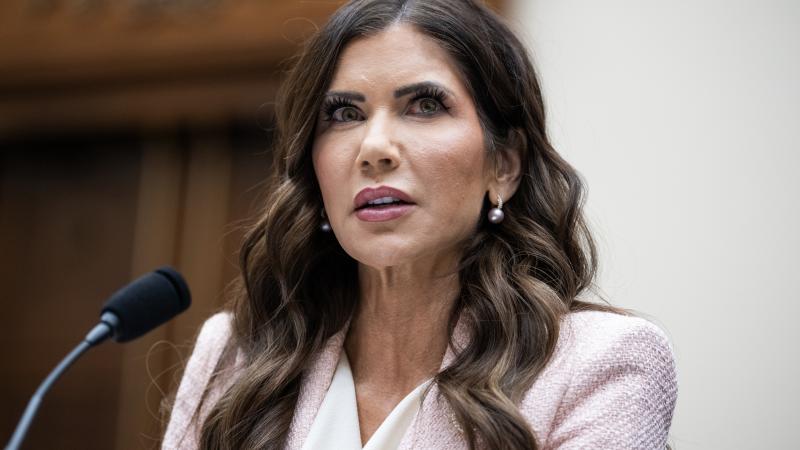After Capitol riot, Democrats condemn violent tactics they've at other times rationalized
Last year's violent Black Lives Matter riots, months of property destruction were met with tepid response.
Numerous Democratic leaders this week have joined the near-universal condemnation of the violent and deadly Capitol riot that occurred on Wednesday, even after many of those politicians have in the past year attempted to rationalize and downplay the violent riots and property destruction that gripped much of the country throughout last summer.
Wednesday's riot at the U.S. Capitol, which occurred amid (and was perpetrated by attendees of) a pro-Trump rally near the Capitol building, saw numerous protesters storm the nation's legislature, sending lawmakers into hiding and briefly delaying the certification of the 2020 election results.
The protesters were seen trashing the offices of numerous politicians, occupying the Senate chambers, making off with Capitol property, and clashing with law enforcement. Amid the chaos, 35-year-old U.S. Air Force veteran and Trump supporter Ashli Babbit was shot in the neck and was later pronounced dead.
The pandemonium, which has been characterized by media and commentators as a coup and/or an insurrection, has been met with essentially universal denunciation, from both Republican and Democratic members of Congress, progressive and conservative pundits and opinion leaders, and leaders from around the globe.
Past incidents of violence have been met with equivocations, rationalizations
Yet numerous Democratic leaders now condemning the Capitol violence have, in the recent past, been less condemnatory of violence led by Black Lives Matter activists and other leftist groups.
Prominent among them has been Alexandria Ocasio-Cortez, the New York representative known for her uncompromising socialist beliefs and her relentless criticism of the GOP.
Since Wednesday's riot, Ocasio-Cortez has been aggressively pushing for President Trump's removal from office, claiming he bears responsibility for the chaos that unfolded at the Capitol. "Our Republic is in great danger," she tweeted on Thursday, calling for Trump to be removed either via the 25th Amendment or by way of a second impeachment.
Yet Ocasio-Cortez has at other times taken a markedly different approach in her assessment of political violence, offering a more nuanced and ambiguous opinion of violent demonstrations.
The violence that swept through many American cities immediately after the police-involved death of Minneapolis resident George Floyd last May included looting, the burning of numerous buildings, including at least one police station, and other widespread property destruction. Following that eruption, Ocasio-Cortez released a video in which she accused people of being hypocritical if they called for an end to the violence without giving into protesters' demands.
"If you are calling for an end to this unrest, and if you are a calling for an end to all of this, but you are not calling for the end of the conditions that created the unrest, you are a hypocrite," she said in the video.
"So if you're out here calling for the end of unrest," she continued, "then you better be calling for health care as a human right, you better be calling for accountability in our policing, you better be supporting community review boards, you better be supporting the end of housing discrimination ... Because if you don't call for those things and you're asking for the end of unrest, all you're asking for is the continuation of quiet oppression."
At the time of that video, several individuals had already died in connection with the protests, with numerous more to follow.
That is not the only time Ocasio-Cortez has seemed to at least tacitly endorse violence. In August of 2019, she claimed that marginalized groups "have no choice but to riot" when faced with adverse living conditions.
"I'm talking about communities in poverty in the United States," she continued. "I'm talking about Latin America, I'm talking about all over the world."
Pelosi: 'People will do what they do'
Speaker of the House Nancy Pelosi is seeking President Trump's removal from office — whether via the 25th Amendment or impeachment — less than two weeks before he is due to vacate the White House to make way for the Biden administration.
Pelosi, along with Sen. Chuck Schumer, accused the president on Thursday of "incitement to insurrection" and "dangerous and seditious acts" due to what critics have claimed was his role in enabling the violence at the Capitol.
Yet after roughly a week of deadly and violent protests following George Floyd's death, in which numerous individuals had died and multiple U.S. cities — including Washington, D.C. — had seen successive nights of major fires, property destruction, looting and vandalism, Pelosi was perfunctory in her disapproval.
"There has been some violence," she acknowledged during a June 2 interview with NPR, adding that "there is no place for that in any of our expressions of concern that the American people want to make. And violence must be addressed."
At the time of that interview, as many as 16 people had been killed amid the protests, including the murder of 77-year-old retired police captain David Dorn by looters.
Later in the summer, amid the wanton destruction of numerous public statutes across the country, Pelosi seemed to metaphorically shrug when asked about the mobs ripping down public monuments across the country, including in her hometown of Baltimore, where a Christopher Columbus statute was thrown into Baltimore's Inner Harbor.
While acknowledging that "from a safety standpoint, it would be a good idea to have it taken down if the community doesn't want it," Pelosi nevertheless said of the destruction of statutes: "People will do what they do."
New Jersey Sen. Cory Booker offered condemnation of Wednesday's violence similar to that of his colleagues. "On August 24, 1814, the British stormed our Capitol and set fire to it," he wrote on Twitter. "Now the Capitol has again been breached and sieged." He referred to the incident as a "nadir of shame."
"It's disgraceful that Trump and his allies have enabled this violence and attacks on our democracy," he tweeted elsewhere.
On June 4 of last year, meanwhile, Booker was far more circumspect about the deadly violence that for a week had swept major American cities and seen the killing of well over a dozen people, the burning of at least one police station, major arson events, looting, vandalism and assault.
"I think that there's an overemphasis, for one, on rioters and looters," he told New York Magazine, calling those individuals "such a small fraction relative to peaceful protesters and activists."
None of the politicians named in this article responded to queries from Just the News.














